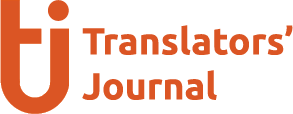
Want to boost your freelance translation career? Securing consistent work from translation agencies is key. By understanding their needs and showcasing your skills, you can position yourself as a valuable asset. Let’s explore a four-step guide to help you win more work from translation agencies.
First, let’s clarify what translation agencies are. Translation agencies are third party vendors that provide language services to end clients. They are often known as Language Service Providers or LSPs. Translation agencies can vary in size, from small local businesses to large multinational corporations. Larger agencies often offer a diverse range of services beyond translation, such as interpretation, localization, and content creation.
Ready to dive in? Let’s explore the four steps to landing more work from translation agencies.
Step 1. Crafting Your Resume
A well-crafted resume is your first impression, so make it count. Tailor your resume to highlight your language skills, industry expertise, and technical proficiency.
Key elements to include:
- Language Skills: Clearly state your native language(s) and foreign language proficiencies (reading, writing, speaking, and translating).
- Translation Experience: Detail your experience in specific fields like technical, legal, medical, or literary translation. Quantify your experience (e.g., “Translated over 1 million words per year”).
- Technical Skills: Highlight your proficiency in translation tools like SDL Trados Studio, MemoQ, or Wordfast.
Tip: Customize your resume for each job application, highlighting the most relevant skills and experiences.
Step 2. Crafting Your LinkedIn Profile
LinkedIn is more than just a professional networking platform; it’s a powerful tool to showcase your expertise and attract potential clients. Here’s how to optimize your LinkedIn profile:
- Engaging Bio: Write a concise and compelling bio that highlights your unique selling points as a professional translator.
- Detailed Skills and Expertise: Clearly list your language pairs, industry specializations, and relevant certifications.
- Professional Profile Picture: Use a high-quality headshot that portrays a professional image.https://translatorsjournal.com/6-tips-to-get-more-work-from-translation-agencies/
- Client Testimonials: Share positive feedback from previous clients to build credibility.
- Showcase Your Work: Use the Portfolio feature to showcase samples of your translations.
- Optimize Your Profile: Use relevant keywords to improve your visibility in search results.
Step 3. Building Your First Client Network
Now that you have a strong online presence, it’s time to connect with potential clients. To do so first create your personalized database of Language Service Providers (LSPs) that align with your language pairs and expertise.
- Create a Database: Maintain a database of potential LSPs, including their contact information, specialization, and any notes.
- Populate your database with potential translation agencies. Identify and connect with reputable Language Service Providers (LSPs) to boost your freelance career. A valuable resource for this is the Nimdzi 100 list, which ranks the top language service providers globally.
- Choose Agencies That Align With Your Skills: Choose LSPs that specialize in language pairs and industries that match your expertise. If you’re not interested in areas like game localization or audio-visual translation, focus on LSPs that prioritize written translation.
- Apply And Take it to Onboarding: Take your list and start applying. The onboarding process may vary from agency to agency. Be prepared to take language proficiency or translation tests as part of the onboarding process.
Step 4. Keep Networking
Congratulations! You are now enlisted in a pool of top translation agencies on the planet. You can now expect to hear of opportunities that match your skills.
But don’t stop there and sit idle. Explore people in the LSPs you are interested in. Follow them on LinkedIn and try to engage in a positive way.
As you widen your network you will come across many more agencies that are not big as the Nimdzi 100 but that are quite good and can offer in fact better prices for your services. Keep cultivating those and keep adding them to your list.
Again try connecting with people behind the boutique agencies as well. In fact you will learn more from these low profile people than the big leaders.
Here’s a strategy to leverage LinkedIn and connect with people in the translation industry:
- Search for Professionals: Use LinkedIn’s advanced search to find individuals working at LSPs.
- Send Personalized Connection Requests: Clearly state your interest in the translation industry and your specific language pairs.
- Engage in Discussions: Participate in relevant groups and share insightful comments to demonstrate your knowledge.
Things to Know About Translation Agencies
- Reliability and Trustworthiness: Translation agencies work with end clients so deadlines and quality are important for them. Tight deadlines are also common, and the ability to deliver translations quickly and accurately is critical. Build a reputation for reliability and trustworthiness by delivering projects on time and to the highest quality standards.
- Effective & Proactive Communication: Respond to emails and messages promptly and professionally. Maintain clear and concise communication throughout the project. And keep agencies informed about your availability, workload, and any potential challenges.
- Lower Rates: Top Agencies may offer lower rates. In this case, be 100% sure of the minimum translation rate at which you can deliver great translations. Always say no if the offered price is below your minimum. Here is an article you may find useful for calculating your minimum translation rates. While calculating your translation rates, consider if it’s a factor that working with agencies gives you more time working on actual translation rather than non-translation chores.
- Professionalism: Maintain a positive and professional demeanor, even when faced with difficult situations. Address any issues or conflicts promptly and professionally.



